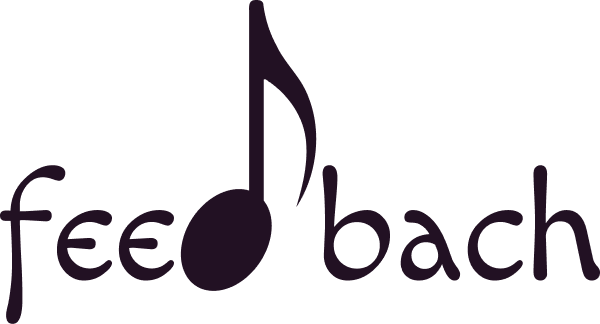 feedbach
feedbachThe Consultant's Journey: Navigating Knowledge, Influence, and Collaboration
Hey there, fellow consultants and leaders! If you've ever found yourself navigating the labyrinth of client sites, juggling multiple projects, and wondering how to make the most impact, this one's for you. Grab a cup of coffee (or tea, no judgment) and let's dive into the fascinating world of consultancy.
Wielding Your Knowledge Like a Pro
First off, let's talk about the bread and butter of our profession—our knowledge. As consultants, we're brought in for our expertise. But it's not just about knowing your stuff; it's about applying it effectively in each unique assignment. Remember, your knowledge is your superpower, but even Superman had to figure out how to use his x-ray vision responsibly.
Feedbach surveys help here by providing insights into how clients perceive your professional skills. The Knowledge category in the survey specifically asks clients, "How would you rate the professional skills of [your name]?" This feedback is gold for understanding where you shine and where you might need a little polish.
The Art of Knowledge Sharing
Now, what's a superpower if you can't share it? Knowledge sharing is crucial. It's about contributing your experiences and insights to the organization and, yes, even back to your employer. Think of it as the professional equivalent of bringing homemade cookies to the office—everyone benefits!
Interacting around the lunch table isn't just about swapping sandwich recipes. It's a golden opportunity to build relationships, understand the team's dynamics, and casually drop that nugget of wisdom that could spark innovation. Plus, who doesn't love a good lunchtime laugh?
The Feedbach survey's Knowledge Sharing section asks, "How would you rate the ability of [your name] to share their knowledge and experiences?" Use this feedback to gauge how effectively you're spreading the wealth of your expertise.
Influencing the Working Environment
Ever walked into a room and felt the energy shift? As consultants, we have the unique ability to influence the working environment positively. It's not just about the tasks at hand but also about fostering a collaborative and uplifting atmosphere.
Adapting to your client's culture while respectfully challenging the status quo (with humility, of course) is a balancing act worthy of a tightrope walker. You're not there to overturn the apple cart but maybe to suggest a better route for it.
Feedbach's Influence category asks clients, "How would you rate the contributions of [your name] to the working environment?" This feedback can help you understand the impact of your presence beyond just deliverables.
Mastering Collaboration
Collaboration isn't just a buzzword; it's the secret sauce to successful projects. It's about working seamlessly with your client's team and ensuring a smooth handover so they can take ownership and maintain the solutions you've crafted together.
Think of yourself as a bridge builder. You're not just helping them cross over challenges; you're leaving behind a sturdy bridge they can use long after you've moved on to your next adventure.
The Collaboration section in the Feedbach survey asks, "How would you rate the collaboration skills of [your name]?" Feedback here is essential for honing your ability to work effectively within and across teams.
The Lunch Table Chronicles
Never underestimate the power of the lunch table. It's where walls come down, stories are shared, and real connections are made. It's where you learn that Karen from accounting runs marathons or that Bob in IT has a knack for dad jokes.
These interactions humanize us and build trust, which is the cornerstone of any successful collaboration. Plus, who knows? Your next big idea might just come from a casual chat over a slice of pizza.
Embracing and Challenging with Humility
Adapting to a new environment requires a keen sense of observation and respect for the existing culture and structure. But that doesn't mean you should shy away from offering fresh perspectives. The key is humility.
Approach suggestions as conversations rather than directives. It's about saying, "Have we considered this approach?" instead of "This is how you should do it." This opens doors rather than closing minds.
Connecting the Dots with Feedbach Surveys
By now, you're probably thinking, "This all sounds great, but how do I know if I'm hitting the mark?" That's where Feedbach comes into play.
- Gathering Insightful Feedback: Feedbach surveys provide structured feedback on your knowledge, knowledge sharing, influence, and collaboration.
- Setting Improvement Goals: Use the feedback to set specific, actionable goals. Maybe you want to improve your knowledge sharing score or enhance your influence in the working environment.
- Creating Feedbach Cards: Showcase your progress over time with visual representations of your feedback. It's like your professional highlight reel!
Wrapping It Up
Being a consultant is more than just completing assignments; it's about leaving a lasting positive impact on the organizations you work with. By leveraging your knowledge, sharing it generously, influencing the work environment positively, and mastering collaboration, you not only enhance your professional journey but also enrich the experiences of those around you.
So, the next time you find yourself at the lunch table, remember that you're not just a consultant—you're a catalyst for growth, one sandwich at a time.
Cheers to making a difference, one project (and one lunch) at a time!